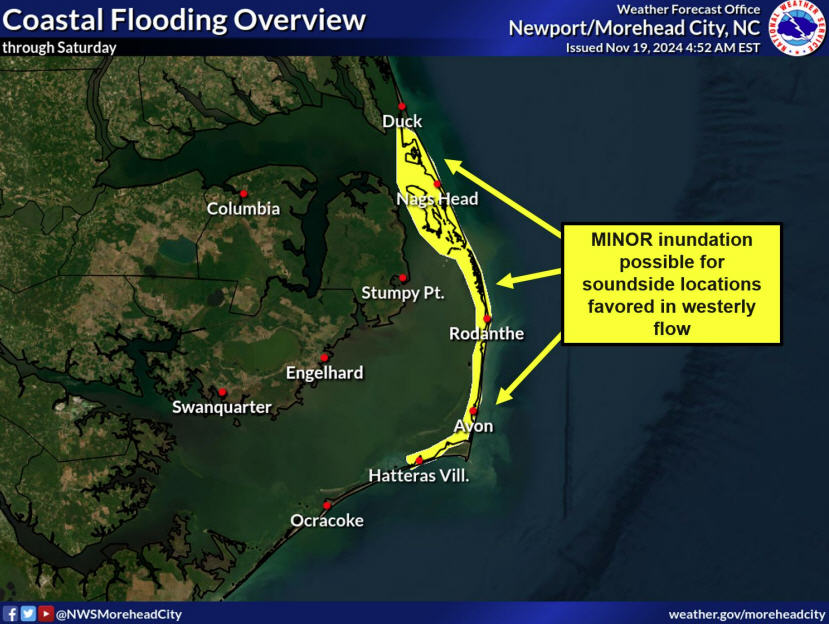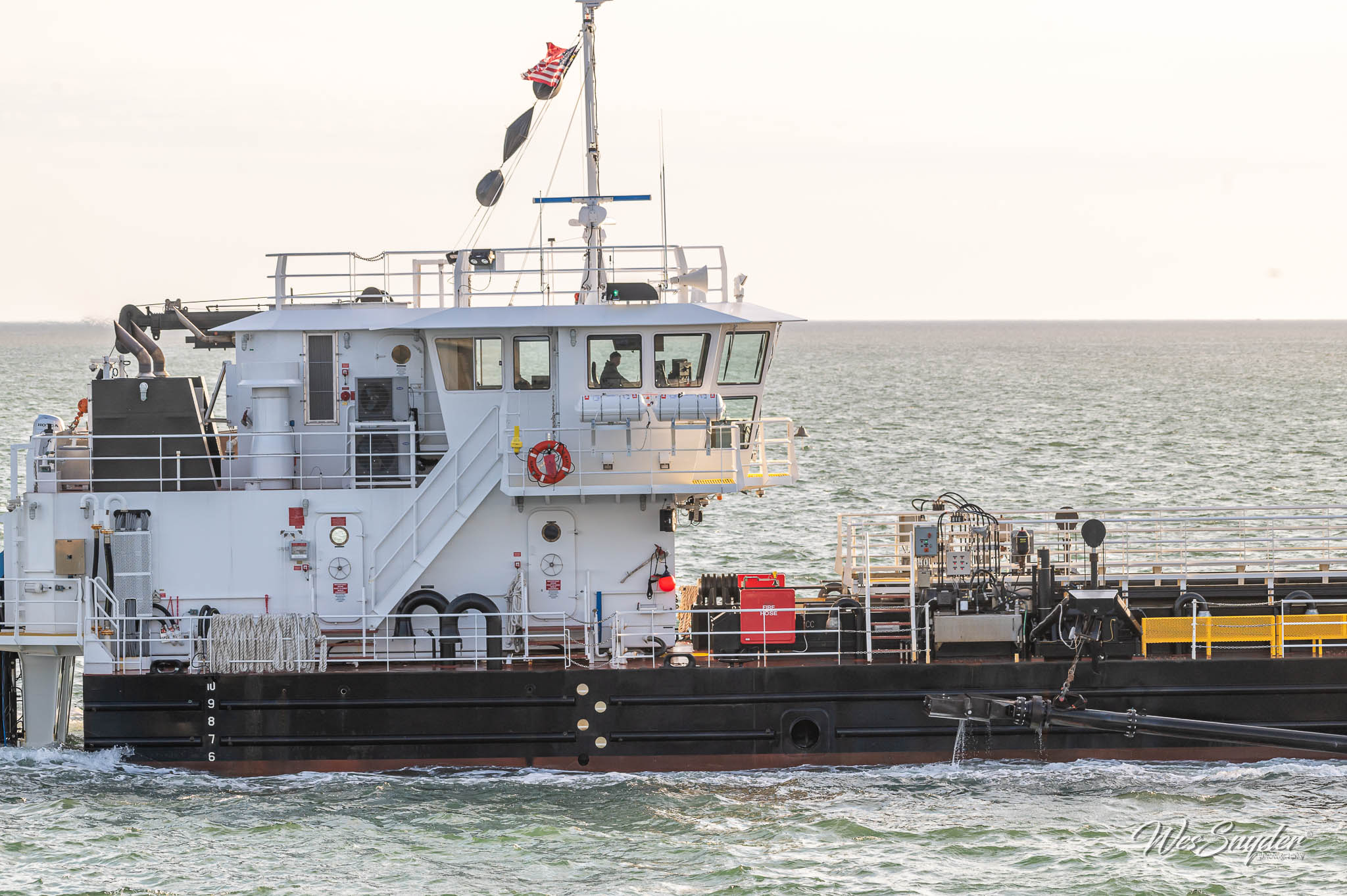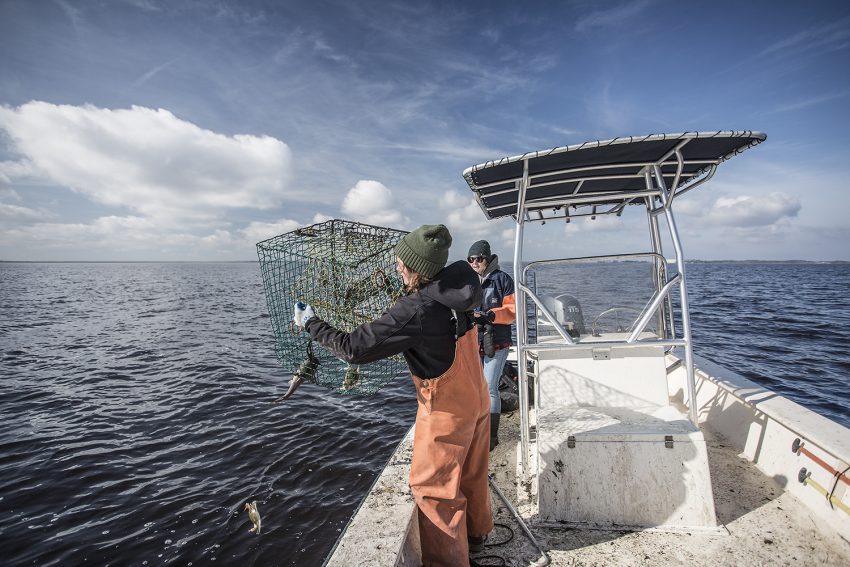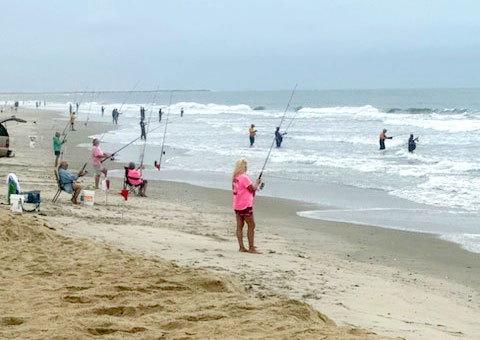Local watermen attend Keep Fishermen Fishing rally in D.C. By MELBA MILAK
Near the cheerful beauty of the cherry trees in full bloom, a group of somber fishermen met in Upper Senate Park in Washington, D.C., at noon on a gray and cloudy Wednesday, March 21. They rallied under the banner, “United We Fish.”
This year’s event was called Keep Fishermen Fishing, and commercial, charter and headboat, and recreational fishermen stood shoulder to shoulder listening as senators and representatives from Congress promised to support flexibility in the Magnuson-Stevens Act and bring relief from unfair practices and regulations in all United States fisheries.
The number of people was fewer than the 5,000 total in 2010 that had fishermen and their friends and families in attendance. This year’s crowd was mostly only fishermen, frustrated and weary from a continual fight against over-rigid regulations and unfair enforcement policies, but trying one more time to be heard.
The North Carolina Watermen United helped sponsor the rally and arranged two buses, one from Nags Head and one from Atlantic Beach, so our state’s fishermen could attend. Fishermen from the entire Atlantic coast, the Gulf coast, and the Pacific coast were present.
In contrast to the 2010 rally, where vague promises were made to “help” fishermen, this year’s rally was focused specifically on reforms to the Magnuson-Stevens Act that has caused fishing restrictions and closures in many areas because of its arbitrary 10-year rule.
Sen. Charles Schumer, D-N.Y., sponsor of S632 in the Senate, called the Flexibility in Rebuilding American Fisheries Act, said that he will call on Congress and the Department of Commerce to begin hearings on reforms to the Magnuson-Stevens Act this year.
Sen. Kay Hagan, D-N.C., a co-sponsor of the bill, supported her state’s fishermen by saying, “Fishing is a crucial industry in North Carolina; the government cannot keep imposing unfair regulations on you.”
Sen. Scott Brown, R-Mass., and Sen. Kirsten Gillibrand, D-N.Y., echoed these same ideas, and Sen. John Kerry, D-Mass., apologized to the fisherman, saying “I am sorry, and I am angry that you have to leave jobs, take time and spend money to come here to Washington to get people to understand how deeply you feel about this issue. We want leadership to ‘have your back,’ not break your back.”
Many speakers also addressed a second issue, the one where inaccurate or incomplete scientific data has been used to bring even more fishery restrictions and closures. Rep. Frank Pallone, D-N.J., primary sponsor of HR3061 in the House, the Flexibility and Access in Rebuilding American Fisheries Act, said, “Please know we have people on both sides in this bipartisan effort. Keep battling!”
Rep. Walter Jones, R-N.C., is a co-sponsor of this bill that will allow fishery management to put fish stocks on a sustainable path while allowing fair access and increased transparency in the scientific process. Last week, Jones told the fishermen, “You are making a difference. You are getting the attention of the Senate and the House. We’ll be there to help you today AND tomorrow.”
Rom Whitaker, who runs a charter boat out of Hatteras, said to the crowd, “Those of us who are out on the water 200 or more days a year are the real experts on stock assessments; we need to get involved in the scientific data collection and have our voices heard.”
Many other representatives from the House pledged their support to both issues including Sandy Adams, Gus Bilirakis, David Rivera, Steve Southerland and Allen West, all from Florida; Barney Frank, John Tierney, and William Keating, from Massachusetts; Michael Grimm and Robert Turner, from New York; Frank LoBiondo and Jon Runyan, from New Jersey, and Jeff Duncan and Tim Scott, from South Carolina.
The official rally ended after about two-and-a-half hours. The day was still gray, but the cloud of gloom over the fishermen’s heads might have lightened just a little as they made their way back home with some hope for Congress to take actions that will allow flexibility in the Magnuson-Stevens Act and with assurances that better stock assessments and scientific data will be collected and used in making fishery decisions in the future.
On the bus coming back to Nags Head, Britt Shackelford, president of NCWU who runs a charter boat out of Wanchese, said, “We really had some heavy-hitters speak to us today.”
Jeff Oden, a commercial fishermen from Hatteras, said, “We need help soon; we need help right now!”
More cautious perhaps, Tilman Gray, a wholesale seafood dealer from Avon, said, “I’m glad I went to the rally, but we’ll see
FOR MORE INFORMATION
See related story, a guest column by Hatteras waterman Ernie Foster, on the Commentary and Letters Page or click here.
(Melba Milak is executive secretary of North Carolina Waterman United.)








